Putin’s war is going nowhere, but neither is he
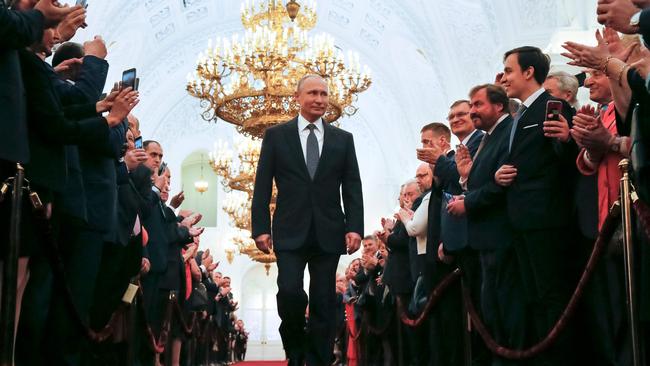
Now the Ukraine war, bungled and brutal, is being treated in the West as the last gasp of Vladimir Putin, the savage denouement of a flailing regime. My bet though is that we have reached mid-Putin not end-Putin. And that even when the war is over, Russia is set to get darker and nastier.
The West projects three false assumptions on Kremlin politics. The first is that leaders are held individually and publicly accountable, that the “mistakes” of the Ukraine war will be subject to the Moscow equivalent of the Chilcot Report. Not going to happen. Nor is there any sign that Putin will lose his appetite for war at home and abroad. The violence underpinning Putin’s system of rule, his geometry of fear, has not been tamed by the invasion. Finally, Putin’s command of the secret police, the courts and the media is so comprehensive that it has become remarkably easy to search out scapegoats and dodge blame for his own blunders. He will not be booed out of power.
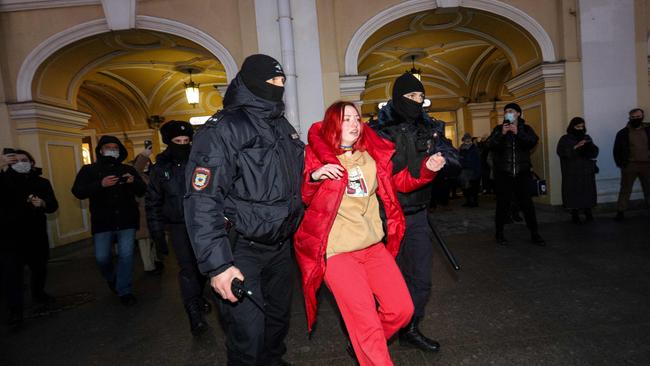
However the war in Ukraine ends, Putin’s anger and frustration will linger and will be turned on the Russians themselves. Get ready for the Great Purge of 2022. It won’t be as fierce as Stalin’s in 1937 when 680,000 were executed, 116,000 sent to the gulag, and thousands committed suicide. Everyone knew what to expect when a judge sentenced the victim of a show trial to “ten years without the right to correspond”. It meant the prisoner had no chance of survival. Putin may admire Stalin but even he has to accept that a modern purge has to look slightly different. After all, in 2017 he formally opened a Wall of Sorrow in Moscow to commemorate the 1937 victims of Stalin. And it is impossible to shake off the way that the purges damaged the psyche of Russia and all the post-Soviet societies.
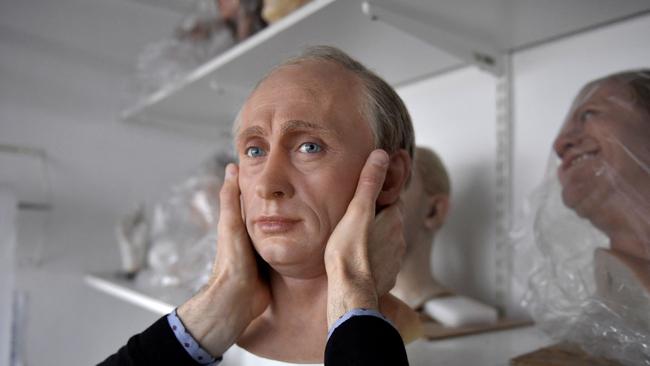
But after Putin’s war comes Putin’s purge and he is already talking the language of the 1930s. The West, he said this month, was trying to spark a popular rebellion in Russia. “But the Russian people are able to distinguish true patriots from bastards and traitors and we will spit them out.” Russia, he said, should undergo “a self-cleansing of society”. Putin resorts to crude language when under stress — with Emmanuel Macron perched nervously on the edge of a Kremlin chair, he compared Ukraine to a rape victim — but now it is often muddled up with the thoughts about national purification. There are already forced deportations from Ukrainian cities, threats of military tribunals, instruments of Stalinist power.
Stalin’s purges were about solidifying his hold at a time when some in the Communist Party were losing faith in his leadership, unhappy about the disasters of collectivising agriculture. The party bigwig Sergei Kirov had been assassinated in 1934 and a secret police investigation appeared to show networks of Stalin opponents. It was a short hop from the late-night knock on the door to the Lubyanka. Putin is also responding to what he sees as internal critics exploiting his poor judgment.
There are striking similarities. Stalin zeroed in on Red Army generals. Putin has replaced at least eight generals and the signs are that he is only just getting going. Sergei Shoigu, the defence minister and once a trusted hunting companion, has largely disappeared from view. Some say he co-planned the latest invasion with senior FSB generals rather than the army top brass, hence the breakdown in logistics, the lack of preparation, the confusion about the real aim of the war. So FSB officers have been placed under house arrest. The securocrats who kept Putin in power are being set up as his scapegoats.
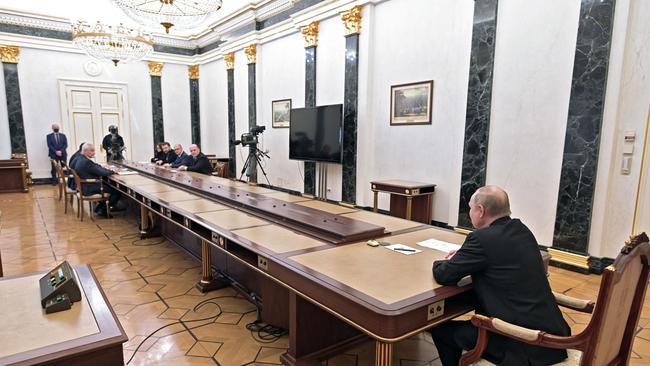
Lest the military campaign fuel a national stop-the-war movement, the dissident-in-chief Alexei Navalny’s prison sentence has been bumped up. Independent media are being muzzled. At least 15,000 people have been arrested for criticising the Ukrainian “operation”. These are not likely to be temporary measures. Rather, they are part of a broader and deeper crackdown. Putin’s purge, like Stalin’s purge, reaches well beyond discontented elites and into the middle class, intellectuals, playwrights, doctors. It hits at the very idea that society could be modernised by personal initiative; it sees civil society as a covert way of sabotaging power.
Little wonder there is an exodus of the young and the smart for Istanbul. They believe Putin has breached an unspoken contract: they would put up with his strict rationing of free speech in return for a comfortable niche where they could operate as tech innovators, earn dollars, find ways of ducking military service. Now, smelling a purge, they prefer to work out of Turkish cafes, just as many of Stalin’s critics once set up in Paris.
1937 was a disaster for the Soviet Union but Stalin continued to rule until his death in 1953. It’s unlikely Putin could last another 16 years; he would be 85. But the West has to sort out how it would deal with a never-ending Putin, a dictator on a constant search for winnable small wars and perhaps even one big final go-with-a-bang showdown among the melting floes of the Arctic.


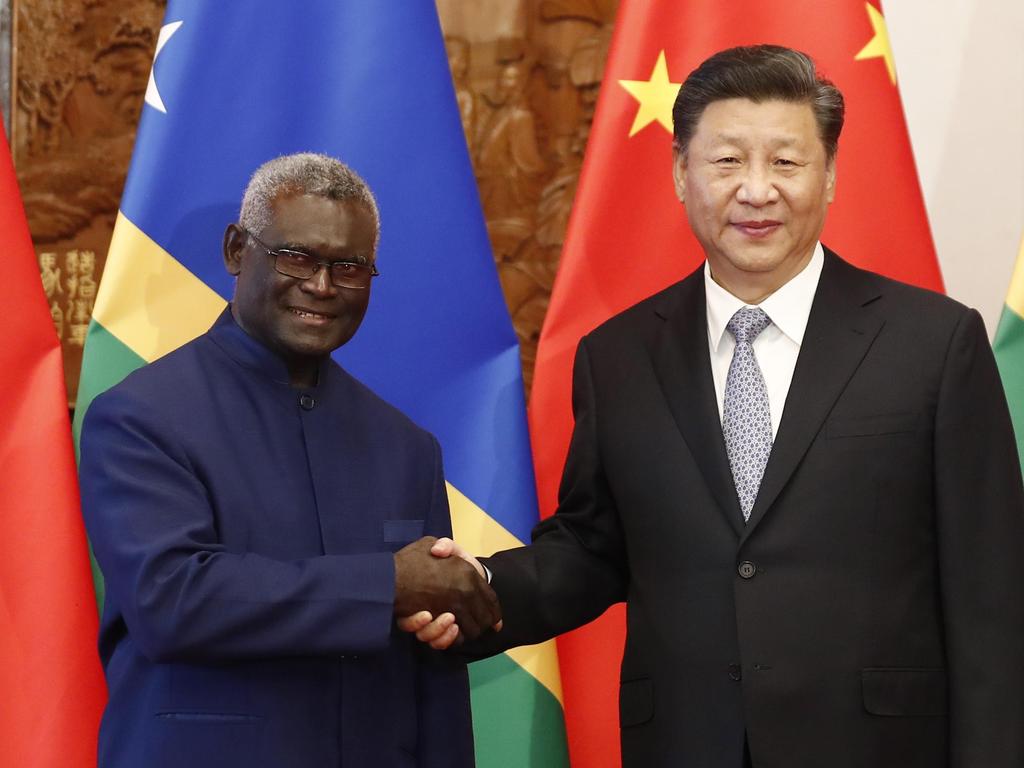



Almost five decades ago I was sent on my first assignment to Moscow as a wet-behind-the-ears foreign correspondent for Reuters, and was told in farewell drinks at the pub just how lucky I was. Surely, said my fellow hacks, I would witness the end of Leonid Brezhnev, the evil man in the Kremlin. Well, end-Brezhnev turned out to be mid-Brezhnev as he staggered on and on.